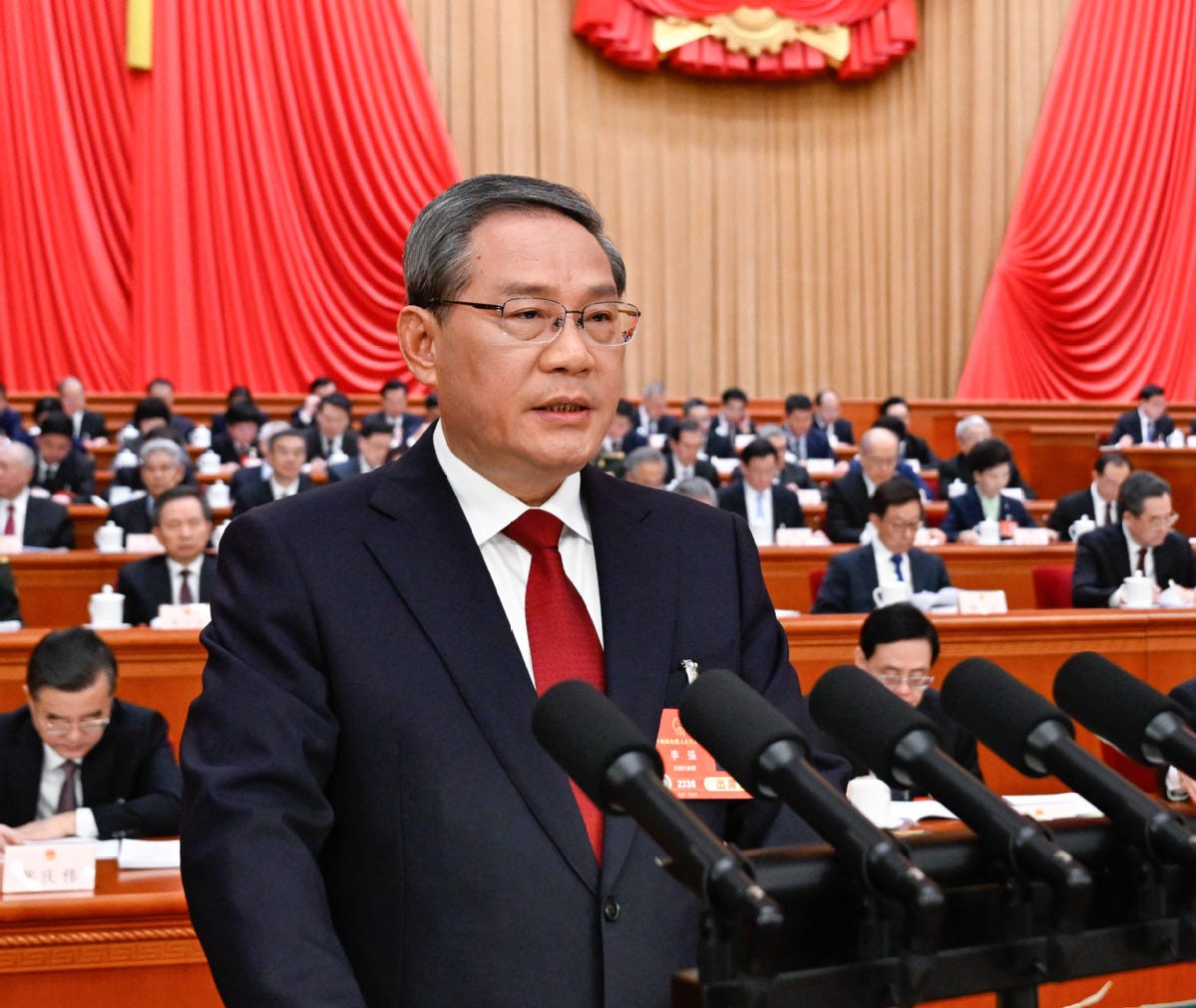Commercial Space Cited for Advancing High-Quality Industry at Two Sessions
Government officials highlighted the sector as an example of high-quality development.

The Two Sessions (两会) are currently ongoing in Beijing, where thousands of government officials from the Chinese People’s Political Consultative Conference (中国人民政治协商会议) and National People’s Congress (中华人民共和国全国人民代表大会) are meeting to deliberate and develop key policies.
During speeches and meetings, various government and party officials cited China’s privately-held commercial space sector, directly and indirectly, as a driver for a modern and high-quality economy. One such speech was from Premier Li Qiang (李强), who delivered the year’s work report on March 5th, who stated:
“We ensured stable performance in the industrial sector and advanced technological transformation and upgrading in the manufacturing sector, which saw a 9.2-percent increase in investment. We fostered a new batch of national-level advanced manufacturing clusters and achieved rapid growth in emerging industries, including commercial space, applications of the BeiDou Navigation Satellite System, and new types of energy storage. Mandatory national standards such as those for environmental protection and safety were formulated or revised. Thanks to swift development of the Digital China Initiative, the value added of core industries of the digital economy rose to about 10 percent of GDP.”
“We will advance integrated and clustered development of strategic emerging industries, carry out demonstration initiatives on the large-scale application of new technologies, products, and scenarios, and promote safe and sound development of commercial space, the low-altitude economy, and other emerging industries.”
For the full text of the speech please see Beijing Scroll’s newsletter.
The success of the Chang’e 6 mission was also mentioned by Li, as the spacecraft brought back almost two kilograms of lunar surface samples from the Moon’s far side.
Following the work report, on March 6th Zhang Shanjie (郑栅洁), Head of the National Development and Reform Commission (发改委), announced that in the near future a national venture capital guidance fund will be established.
Additionally on the 6th, Pan Gongsheng (潘功胜), Governor of the People's Bank of China, announced that the bank would launch a science and technology board in the bond market to bolster scientific and technological innovation. Alongside this, it was stated that the bank will improve its lending program regarding innovation, and increase its size from 500 billion Yuan to between 800 billion and 1 trillion Yuan (around 110.5 to 138.2 billion United States Dollars, on March 7th).
Both of these policies will allocate funding to various enterprises to enhance and expand innovation efforts as China pursues innovation-driven development and growth. Commercial space companies should receive part of this funding as the Central Government seeks to foster more Unicorn1 and Gazelle2 enterprises.
At present in the commercial space launch sector, various reusable rockets are set to launch, and possibly refly, this year. These rockets, like Zhuque-3, Pallas-1, Hyperbola-3, are set to bring down the costs of launch and increase China’s launch cadence. Speaking on the matter, rocket designer Rong Yi (容易), member of the National Committee of the Chinese People’s Political Consultative Conference, said:
"With rocket recovery and reuse, we can expect faster launch frequencies and lower costs, making large-scale, rapid, and flexible access to space increasingly feasible," — “This shall bring us closer to the reality of large-scale, rapid, and free access to space. From a technological development perspective, the application of recovery technology will drive upgrades and innovation in our capabilities”
These flexible large-scale capabilities will be needed to deploy various mega-constellations and Space-Based Solar Power stations.
Of course, the Two Sessions are still ongoing, and are expected to wrap up around March 11th, so I expect some more news regarding China’s space sector to be announced. Again, the China Aerospace Science and Technology Corporation’s 2025 ‘Blue Book’ is expected to be released imminently, which will outline the space sector’s goals for the year.
Also check out the CPC courting commercial space:
A Unicorn company is a privately-held startup with a valuation of over one billion United States dollars.
A Gazelle company is a fast-growing company that experiences around twenty percent growth annually.


